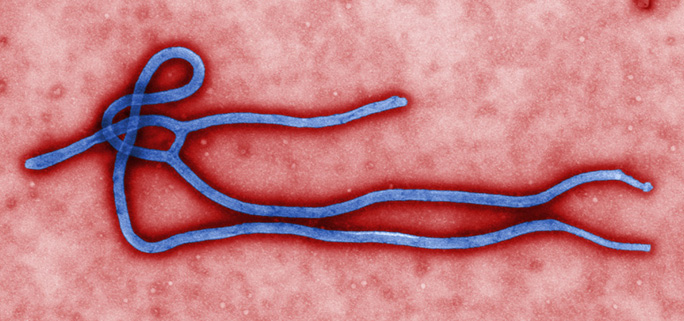Ebola virus
Over the course of the last few years, I have warned that Ebola could easily turn into a pandemic, and I am very sorry to be eerily correct in that prediction.
Ebola deaths now exceed just shy of 4,000 people in West Africa, and both the World Health Organization (WHO) and the Centers for Disease Control and Prevention (CDC) warn that the disease is likely to spiral out of control and infect more than half a million people before it can be contained.
With a mortality rate of 70 percent of those who contract the Ebola virus, and with many cases presumably un-reported, we actually do not know just how bad this can get. Could Ebola spread like the 1918 Spanish flu, which killed over 20 million people? It certainly could if not contained.
At present, there is no known cure for Ebola. The experimental drug ZMAPP has worked on five people, while two recipients have died. That drug will not be widely available for many months more, and still stocks may be insufficient. But predictably, there are many completely phony Ebola “cures” being promoted, much to the great disadvantage of the general public. In August, the U.S. Food and Drug Administration (FDA) warned of fraudulent treatments, and other health agencies have followed suit. Still, the con is on, and many people will be misled in believing that they can either prevent or treat Ebola through remedies that offer no benefit against the disease.
One bogus cure is turmeric root. This is one of the best-studied medicinal plants on earth, and one of my favorites. It is powerfully antioxidant and anti-inflammatory, and relieves pain as well as either acetaminophen or ibuprofen. It offers protective benefits to the brain, and helps to improve mood. But no turmeric product will help in any way against Ebola.
Oddly, bathing in salt water is yet another folk cure that people are mistakenly employing to prevent and treat Ebola. Salt water is highly beneficial for the skin, and the naturally soluble minerals in sea water can help to relieve rashes, itching, redness and various forms of skin irritation. But as a remedy for one of the most deadly contagious diseases ever, it’s a total non-starter.
Kogel Mogel, a popular eastern European eggnog type of recipe, is credited as a cure for Ebola, and the misinformation on this delightful tasting but wholly ineffective concoction is spreading virally throughout social media. Nipping at its heels is Garcinia kola, an African plant used to treat colds and fevers. Its regional medicinal status has been boosted greatly for its purported Ebola-fighting properties, even though there is no evidence that is works at all.
Oregano oil and cinnamon oil are also being touted as effective Ebola cures that are purportedly being suppressed by government authorities who, according to accusations, are using the disease to make billions in profits. Most of the claims for these two oils come from members of an MLM company that sells the oils. Where there are profits to be gained, claims will be made.
At the very same time that social media sites are abuzz with supposed “suppressed” Ebola cures, conspiracy theories abound. The most bizarre of all is that Ebola turns people into zombies, and that somehow this plays into the interests of big government. Many theorist argue vociferously that Ebola is either a baseless scam being promoted to scare us into complying with more restrictive laws that limit our freedom, or a plot to kill Africans. Meanwhile, innocent people are dying.
You can’t get away from social media, and there are no limits to the human imagination. Combine these two, and you have fertile ground for false remedies, conspiracy theories, and alarming concepts of all kinds. As a life-long advocate of natural medicines, I would love nothing better than the discovery of a natural Ebola preventive or cure. And if one is discovered and tested to be effective, I will be a loud advocate. But until then, my best advice is to sober up about this deadly epidemic, and pay close attention to both CDC and WHO. They are the ultimate experts on this disease.


